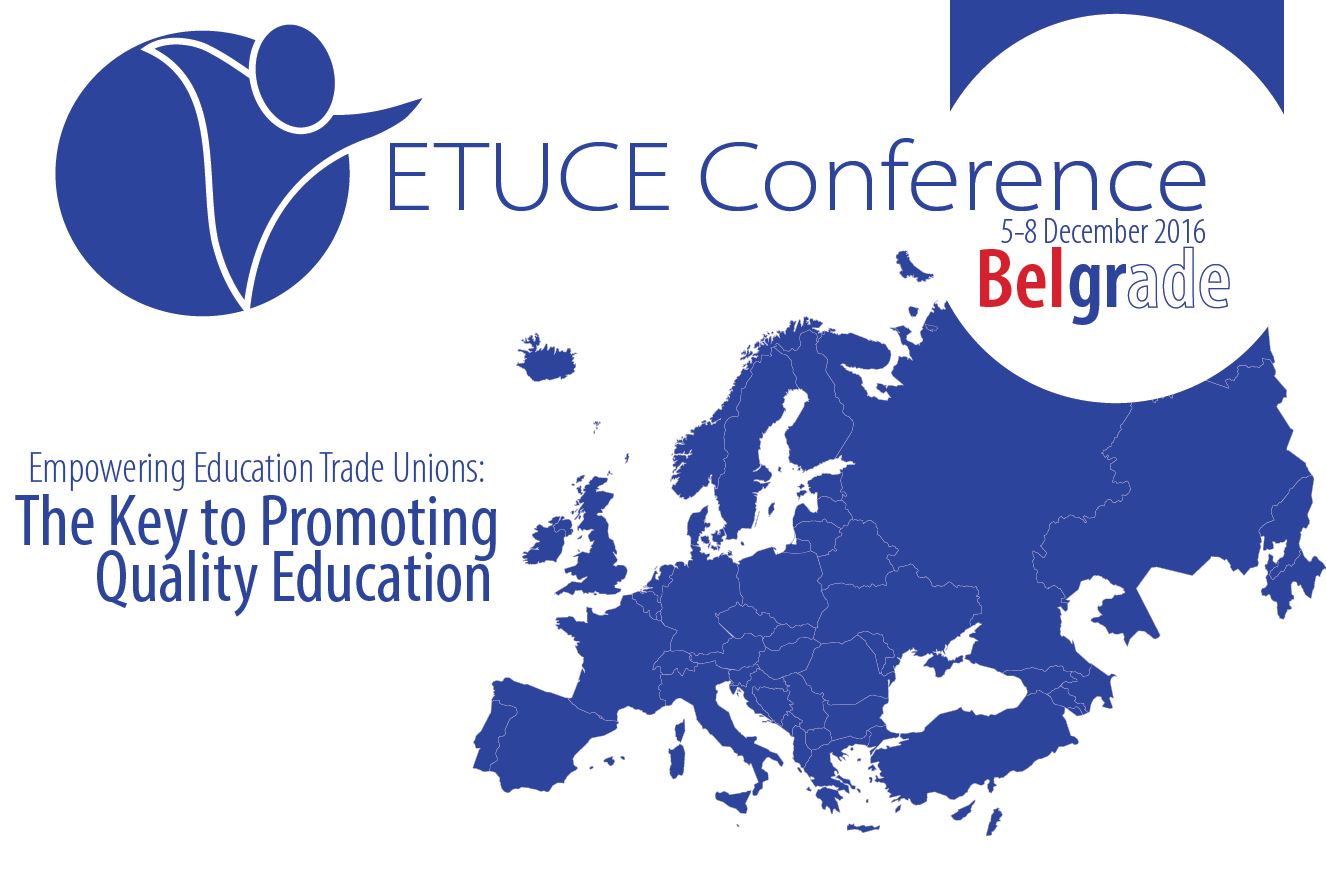Towards the ETUCE Regional Conference: Sustainable financing for quality education
Published:
On 6-8 December 2016, ETUCE, the European Region of Education International (EI), during its Regional Conference in Belgrade, Serbia, will take up challenges for quality education related to sustainable public financing, with a view to empower education trade unions in Europe. The Conference is to put forward alternatives to austerity across Europe and to discuss how education trade unions could counter the ideological drive towards privatisation encouraged by some European policies, lobbying and for-profit interests.
- European-level policies proved to have an impact on national policies on education, teachers’ work and professional interests and the financial governance of education budgets. As a result of the economic crisis and strict budgetary and fiscal constraints, the quality of education and training systems have been deteriorating, bringing about destructive effects on teachers’ professional and personal wellbeing, and, thus, posing threats to the principle of free quality education for all.
- In order to overcome education investment shortages, governments across Europe have been encouraged to enhance public-private partnership and cooperation with business. Public-private partnerships have an impact on the quality of education, not at least because private investment also includes the demand for standardisation of education outcomes, thus of teaching and learning.
- Additionally, new trade and investment agreements, including CETA (Comprehensive Economic and Trade Agreement between Canada and the European Union), TTIP (Transatlantic Trade and Investment Partnership between the US and the EU) and TiSA (Trade in Services Agreement), which clearly lack transparency and democracy, pose significant risks to educational policy, public schools and other education institutions, and for teachers, students and communities. The concluded CETA text demonstrates that public services are not protected from the scope of the agreement.
EI/ETUCE member organisations constantly reported increasing pressure coming from the inappropriate use of neo-liberal, market and business driven ideology and approaches in education at European and national level that lead to increasing privatisation trends in Europe, and challenges for education trade unions. “Empowering education trade unions as key to promoting quality education” says Martin Rømer, ETUCE European Director, “means, among other things, to also build their capacity to deal with education financing issues, to deploy resources, to be attentive on economic developments at national European and international levels, but also to spread alternative ideas on sustainable and inclusive economic growth, also to the wider public”. More on this topic will be dealt with by the ETUCE Regional Conference, Belgrade, Serbia, on 6-8 December.